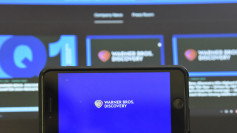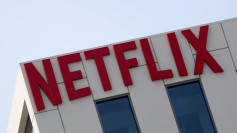Pfizer is setting a new course in the battle against respiratory syncytial virus (RSV) by targeting a younger demographic with its vaccine, Abrysvo. In a significant development, the pharmaceutical giant announced that its late-stage clinical trials indicate the vaccine's potential to shield adults aged 18 to 59 who are at an elevated risk of severe RSV infections. This move could substantially widen the vaccine's usage beyond its current approval for older adults and expectant mothers in the U.S., Europe, Japan, and other regions.
The push into the younger, high-risk demographic is a strategic play by Pfizer as it aims to capture a larger slice of the RSV vaccine market, currently dominated by GlaxoSmithKline (GSK) with its vaccine Arexvy. Despite Pfizer's Abrysvo generating about $890 million in revenue in 2023, it trailed behind GSK's $1.5 billion in sales. With this expansion, Pfizer is not just broadening the potential beneficiary pool but also intensifying the competition in the RSV vaccine domain.
Dr. Iona Munjal, Pfizer's executive director of clinical vaccine research and development, emphasized the importance of extending protection to younger adults who suffer from chronic conditions like asthma and diabetes, which heighten their susceptibility to RSV. According to Pfizer, nearly 10% of U.S. adults between 18 to 49 years old have chronic conditions that put them at risk, with the figure jumping to around 24% for those aged 50 to 64.
Pfizer's ambitious expansion plan is on track, with the company aiming to nearly double its wealth management headcount in China by 2025 as part of its Asia pivot strategy. This expansion is set against the backdrop of China's economic uncertainties, including a debt crisis in local municipalities and the property sector. Yet, Pfizer remains committed, viewing the Chinese market as a long-term investment requiring patience and persistence.
The latest trial outcomes for Abrysvo in high-risk adults aged 50 to 59 have met the primary goals for efficacy and safety, showcasing an immune response comparable to that observed in older adults. This similarity bolsters confidence in the vaccine's potential efficacy across different age groups. Participants in the trial, which included nearly 700 patients with underlying medical conditions, exhibited a significant increase in protective antibodies against RSV one month post-vaccination.
Pfizer's move to seek expanded approval for Abrysvo in adults aged 18 to 59 underscores the company's proactive stance in addressing RSV across a broader age spectrum. While the timeline for regulatory submission remains unspecified, Pfizer plans to present the final trial results at an upcoming scientific conference and pursue publication in a peer-reviewed journal.
As Pfizer navigates the regulatory landscape for Abrysvo's expanded use, the broader medical community remains cautious. Dr. David Boulware, an infectious disease specialist, pointed out that while certain high-risk individuals would significantly benefit from the vaccine, the clinical advantage for the majority within the expanded age group might be limited.
Amidst these developments, the RSV vaccine market is witnessing a dynamic interplay of innovation, competition, and strategic positioning, with Pfizer's latest moves exemplifying the pharmaceutical industry's commitment to broadening vaccine accessibility and protecting vulnerable populations against pervasive respiratory infections.






